東工大ニュース
東工大ニュース
「Tokyo Tech Bulletin(トーキョー テック ブリテン)」は、東京工業大学の研究成果やニュース記事、学生の活動などを紹介し国内外へ広く配信する英文メールニュースです。この度、Tokyo Tech Bulletin No.65が発行されました。
メールでの配信をご希望の方は申込フォームからご登録ください。
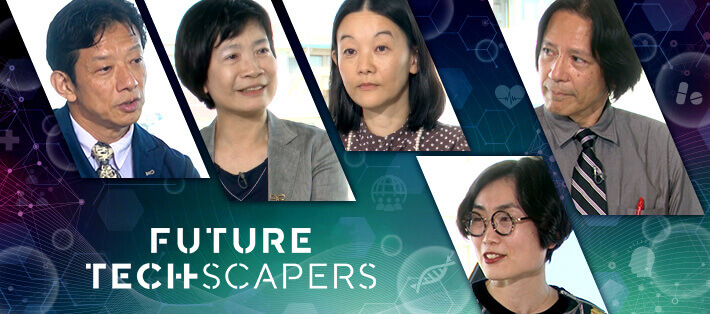
How will the mind and the body of individuals, and society be changed once DLab's future scenario No. 19 "Design, or remove, your own aging process"outer is realized? Five researchers from different fields consider a 100-year lifespan through the themes of family, human body, religion, and care.
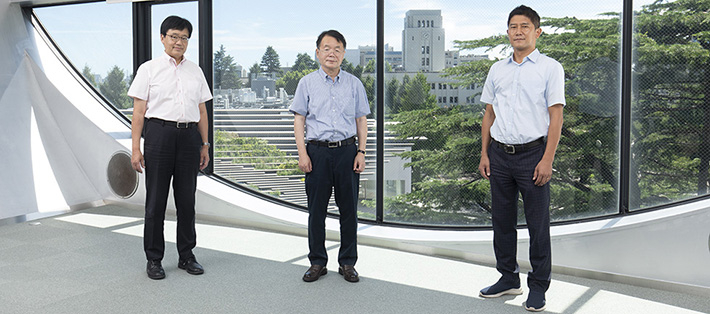
Talk with three reseachers about "nurturing doctoral students" as a way to developing human resources who will shape the future, and about "enhancement of research capabilities" as a way to create innovation through the development of science and technology.
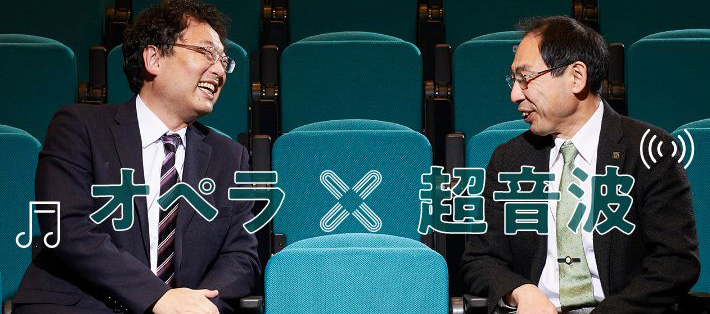
Sound is everywhere in our daily lives from musical performances and singing voices to the sounds of nature, noise, and ultrasound. Here is a talk on sound between Jun Takahashi, a singer (tenor) and performing in operas, and Professor Kentaro Nakamura, conducting cutting-edge research on ultrasound. Insights from different fields will help to unravel the potential of "sound".
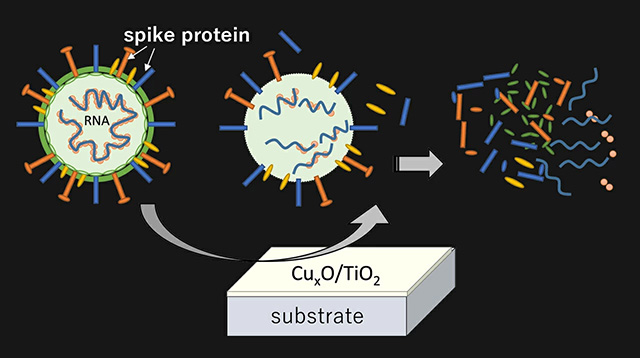
Photocatalyst made using a combination of titanium dioxide (TiO2) and copper oxide (CuxO) nanoclusters inactivates various variant types of novel coronavirus SARS-CoV-2. Scientists in Tokyo Institute of Technology, Nara Medical University and Kanagawa Institute of Industrial Science and Technology have developed this antiviral photocatalyst, in a recent breakthrough, which has been proven to be effective under both darkness and indoor light.
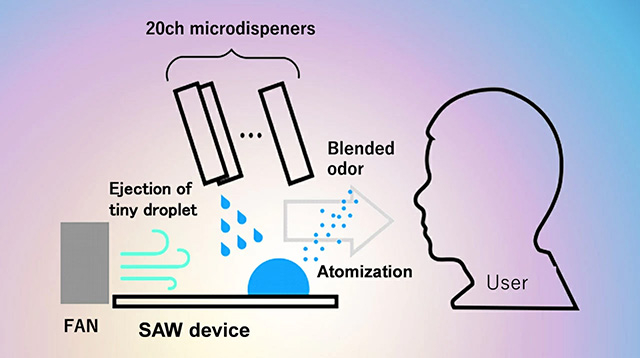
A technology to generate a variety of scents by blending multiple odor components using mass spectra and multidimensional data analysis has been developed by Tokyo Tech researchers. They showed that the scents could be reproduced using a multicomponent olfactory display. Twenty odor components were extracted using the mass spectra of 185 essential oils. The sensory test for seven typical essential oils revealed that their scents could be successfully replicated.
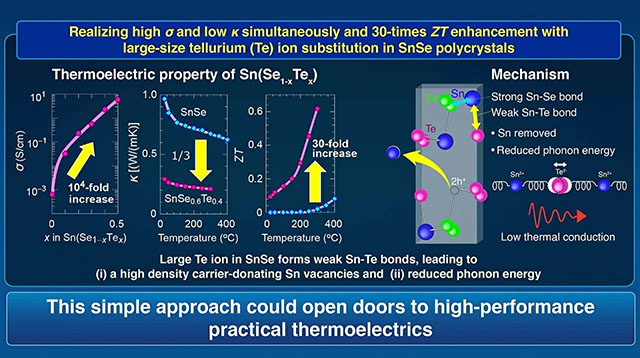
Tin selenide (SnSe) is a potential thermoelectric material, but needs complicated synthesis processes to realize a high conversion efficiency in its polycrystal form, which is required for practical applications. Tokyo Tech scientists demonstrate that the simple method of tellurium ion substitution can improve electronic and thermal properties simultaneously, resulting in a 30-fold performance enhancement. This result points to a new way for their practical applications in high-efficiency thermoelectric energy conversion.
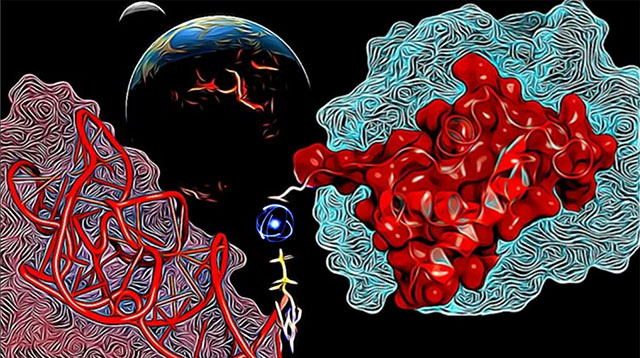
Protein-RNA complexes are ubiquitous in modern life and are essential to many stages of the cell cycle and metabolism. New research presents experimental support to provide a new perspective on how early protein-RNA interactions evolved.
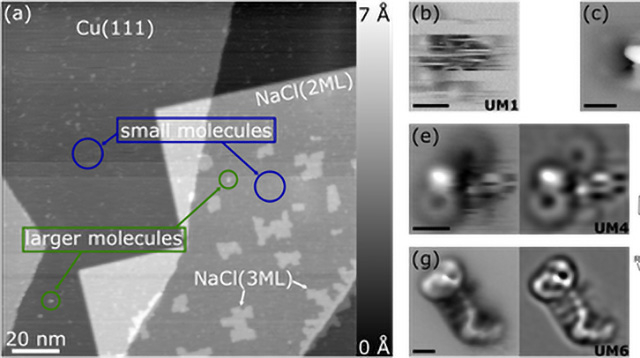
Carbonaceous meteorites are widely thought to have been an essential source of organic compounds for the early Earth; some scientists even believe these organics were crucial for the origins of life on Earth. Recent advances in atomic force microscopy (AFM) have allowed scientists to visualise individual molecules so that they can see the individual atoms and bonds in them. For the first time, individual organic molecules from carbonaceous meteorites have been visualised using AFM, opening a new window into understanding the structure of the Solar System's earliest organic compounds at atomic resolution.
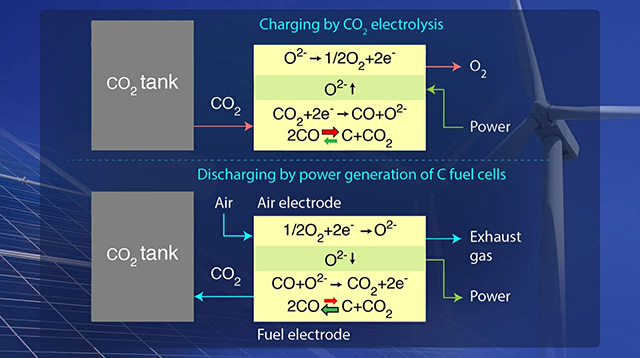
Imagine a stable power supply along with a high energy density! This is exactly what has been developed by scientists at Tokyo Institute of Technology (Tokyo Tech) in the form of a carbon-based energy storage system. This could be a potential alternative to large-scale hydrogen-based energy storage systems that suffer from low energy density, allowing us to efficiently harness the renewable energy sources to meet the demand for clean energy.
Tokyo Tech Bulletinは英語で配信を行っていますが、コンテンツは一部を除いてすべて日英両方で掲載しています。